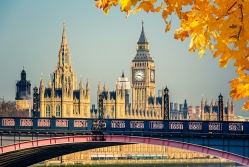 George Osborne's Autumn Statement has been broadly welcomed by businesses - as much for what he left out as for the measures he announced.
George Osborne's Autumn Statement has been broadly welcomed by businesses - as much for what he left out as for the measures he announced.
Changes that businesses feared - including the end of business rate relief, the possible scrapping of Entrepreneurs' Relief and rumours of new tax rules for contractors - failed to materialise in Osborne's 2015 Autumn Spending Review.
Darren Fell, ceo of Crunch Accounting, said: "We were pleased the Chancellor decided not to implement the rumoured one-month rule, which could have devastated the freelancer and contractor communities. However other measures to support entrepreneurs were notable by their absence - by my count the Chancellor spent roughly fifteen seconds addressing the second-largest business community in the UK."
Earlier this week, business groups had expressed fears about the status of small business rates reliefs that were due to expire in April 2016. Osborne's extension of the scheme is good news for small businesses. John Longworth, director general of the British Chambers of Commerce (BCC), said: "Extending the small business rate relief scheme will support businesses across the country while the broader shape of a reformed business rates system is determined."
John Allan, national chairman for the Federation of Small Businesses (FSB), also welcomed the news. He said "Over 600,000 small and micro-enterprises depend heavily on this relief. Its removal would have been an additional tax rise."
Of the budget as a whole, Allan said: "Given the tight constraints that the Chancellor was working to, small businesses will be pleased that he has listened to their concerns."
However, new details about the way the Apprenticeship Levy will work have not pleased everyone. Simon Walker, director general of the Institute of Directors (IoD), said: "The major business tax announcement of this Autumn Statement was the Apprenticeship Levy, which can only be described as a new payroll tax. At 0.5% of payroll it will be a big new cost for many companies, including medium-sized ones. Firms have been promised they will get back more than they put in, but it's not clear how this will happen if so much is being lost in bureaucracy."
Meanwhile, Osborne's promised investment in skills, innovation and infrastructure has been applauded. John Longworth said: "The 50% increase in capital expenditure for transport is good news, but we sorely need the Government to crack on and get building."
Looking ahead to Budget 2016, Osborne's strategy depends on the UK's continued economic success. The IoD's Simon Walker said: "The Chancellor will know that if the economy chills and tax receipts disappoint, his plans will suddenly become much harder to achieve. With over a dozen tax consultations launched since the election, there is a real worry for businesses that next year's Budget will see further tax increases."
